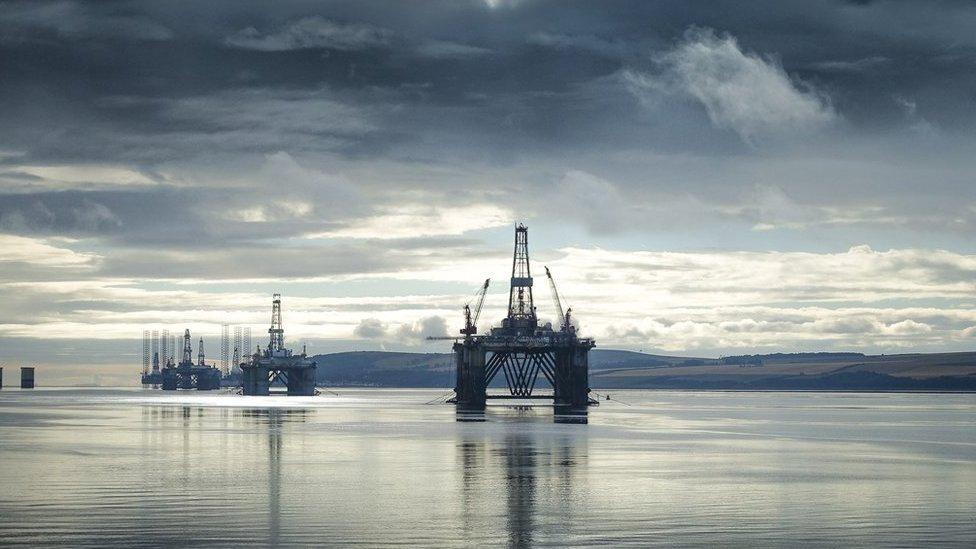Rigs may act as 'stepping stones' for non-native species
- Published

The bases and legs of oil and gas platforms can be home to different species of marine life
Scientists are investigating what role oil rigs and offshore wind farms play in supporting marine wildlife and the spread of non-native species.
The base and legs of platforms, subsea pipelines and wind turbines can be home to different species.
The animals include mussels, barnacles, shrimp-like amphipods and anemones.
Orkney-based researchers are looking at how structures in the North Sea act as "stepping stones" for some of these creatures to spread.
The team of scientists from the International Centre for Island Technology, a campus of Edinburgh's Heriot-Watt University, have started the study by investigating the behaviours of mussels and barnacles, including if their larvae travel from one rig to another.
Marine scientist Dr Jo Porter, who is leading the project, said: "We want to understand what could happen to the North Sea ecosystem if oil rigs are decommissioned, or offshore wind farms are installed.
"When there are habitats close together they can act as a stepping stone for non-native species to set up shop and thrive.
"If we create many more habitats in the North Sea through more infrastructure, how might this contribute to the spread of non-native species? If we remove some of the hardware, how will we affect the distribution of key species?"